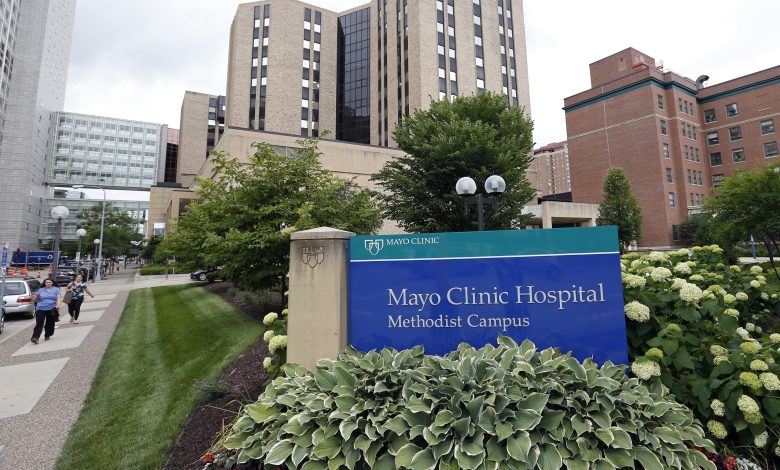The 10 Best Hospitals in the World

In today’s rapidly advancing world of medicine, hospitals play a pivotal role in providing cutting-edge healthcare services and advancing medical knowledge. These facilities offer a comprehensive range of services, catering to the diverse needs of patients seeking medical treatment, diagnostic testing, and rehabilitative care. Staffed with dedicated medical professionals, hospitals encompass a vast array of specialties, from cardiology and oncology to pediatrics and neurology, ensuring patients receive specialized attention for their unique health conditions. These institutions not only provide acute care but also play a crucial role in medical education and research, shaping the future of healthcare through their affiliations with medical schools and involvement in groundbreaking research.
Accreditation processes help maintain high-quality standards, assuring patients of safe and effective care. Additionally, hospitals engage in community health initiatives, fostering preventive care and contributing to the overall well-being of the communities they serve. Despite facing challenges such as patient volumes and financial constraints, hospitals remain steadfast in their commitment to delivering exceptional medical care and improving the lives of countless individuals worldwide. In this article, we will explore the ten best hospitals in the world, where medical innovation meets compassion, and patients receive the highest quality of care.
Qualities of A Good Hospital
A good hospital with high-quality service is characterized by several key attributes that contribute to its ability to provide excellent patient care and meet the healthcare needs of the community it serves. Here are some defining factors of a good hospital:
1. Competent and Qualified Staff: A high-quality hospital employs well-trained and experienced healthcare professionals, including doctors, nurses, technicians, and support staff. They should possess the necessary expertise to deliver effective and compassionate care to patients.
2. Patient-Centered Care: A good hospital focuses on patient-centered care, taking into consideration the individual needs, preferences, and values of each patient. This includes effective communication, shared decision-making, and respecting patients’ rights and dignity.
3. Clinical Excellence: The hospital should have a track record of delivering evidence-based medical treatments and achieving positive patient outcomes. Continuous quality improvement efforts should be in place to maintain high standards of care.
4. State-of-the-Art Facilities and Equipment: Access to modern medical technology and up-to-date equipment is crucial for accurate diagnoses and effective treatment. A good hospital invests in advanced facilities and keeps up with medical advancements.
5. Safety and Hygiene: Maintaining a safe and clean environment is essential for preventing infections and ensuring patient safety. Implementing proper hygiene protocols and following best practices are crucial aspects of a high-quality hospital.
6. Efficient Processes: An efficient hospital optimizes its processes to minimize waiting times, reduce administrative burdens, and streamline patient flow. This ensures that patients receive timely and effective care.
7. Availability of Specialized Services: A good hospital should have access to a wide range of medical specialties and subspecialties to address various health conditions comprehensively.
8. Patient Education and Support: Educating patients about their health conditions and treatment options empowers them to participate in their care actively. The hospital should provide resources and support for patients and their families throughout the treatment process.
9. Emotional and Psychological Support: High-quality hospitals recognize the emotional impact of medical conditions on patients and their families. They offer counseling and mental health support to address emotional needs.
10. Transparent and Ethical Practices: The hospital should be transparent in its billing practices, treatment options, and medical outcomes. Ethical conduct and a commitment to patient rights are vital aspects of a good hospital.
11. Community Involvement: A good hospital actively engages with the local community, participates in health promotion programs, and collaborates with other healthcare providers to improve the overall health of the community.
12. Positive Feedback and Reputation: Feedback from patients and their families, as well as the hospital’s reputation in the community and among healthcare professionals, can be indicators of the quality of service provided.
Best Hospitals in the World
Across the globe, there are several exceptional institutions that have garnered international recognition for their commitment to excellence, patient-centered care, and groundbreaking medical research. These hospitals include:
1. Mayo Clinic (Rochester, Minnesota, USA): Renowned for its patient-centric approach and integrated healthcare model, the Mayo Clinic consistently ranks among the top hospitals globally. Boasting a vast array of specialties, its team of dedicated physicians and researchers work in tandem to offer unparalleled medical expertise and personalized treatment plans.
2. Cleveland Clinic (Cleveland, Ohio, USA): With a legacy of innovation and a commitment to research and education, the Cleveland Clinic has earned a reputation as one of the world’s leading medical centers. Patients from around the globe seek its services, benefitting from its state-of-the-art facilities and world-class specialists.
3. Johns Hopkins Hospital (Baltimore, Maryland, USA): An institution with an illustrious history of medical achievements, Johns Hopkins Hospital stands as a beacon of excellence in healthcare. It is renowned for its pioneering research, exceptional patient care, and comprehensive medical services across various disciplines.
4. Massachusetts General Hospital (Boston, Massachusetts, USA): Affiliated with Harvard Medical School, Massachusetts General Hospital is a symbol of clinical excellence. The hospital’s commitment to innovation and medical breakthroughs has earned it a prominent place among the world’s top medical institutions.
5. University of Tokyo Hospital (Tokyo, Japan): As a leading medical center in Asia, the University of Tokyo Hospital boasts world-class medical research and an extensive range of specialized medical services. It remains a hub of medical education, drawing students and researchers from around the world.
6. Charité – Universitätsmedizin Berlin (Berlin, Germany): Europe’s largest university hospital, Charité, exemplifies a perfect amalgamation of compassionate care and groundbreaking research. It offers top-tier medical services and contributes significantly to medical advancements.
7. Singapore General Hospital (Singapore): In the heart of Southeast Asia, Singapore General Hospital is celebrated for its high-quality healthcare services and patient-centered approach. The hospital’s commitment to continuous improvement and collaboration with other medical institutions sets it apart as a global leader in healthcare.
8. Toronto General Hospital (Toronto, Canada): As a leading teaching hospital affiliated with the University of Toronto, Toronto General Hospital stands out for its expertise in organ transplantation, cardiac care, and cutting-edge medical research. It consistently ranks among the best hospitals worldwide.
9. King’s College Hospital (London, UK): With a legacy spanning over 175 years, King’s College Hospital is a beacon of medical excellence in the United Kingdom. Its commitment to innovation, research, and compassionate care has earned it global recognition.
10. Bumrungrad International Hospital (Bangkok, Thailand): Embracing medical tourism, Bumrungrad International Hospital offers world-class healthcare services to patients from across the globe. Known for its international patient services and comprehensive medical specialties, it is a pioneer in the field of medical travel.
The 10 best hospitals in the world exemplify the epitome of medical excellence, setting standards for patient care, research, and innovation. These institutions continue to impact the global healthcare landscape positively, saving lives, and pushing the boundaries of medical knowledge. Through their relentless pursuit of excellence, they inspire other healthcare providers to strive for exceptional patient outcomes and improve the overall health and well-being of communities worldwide.





